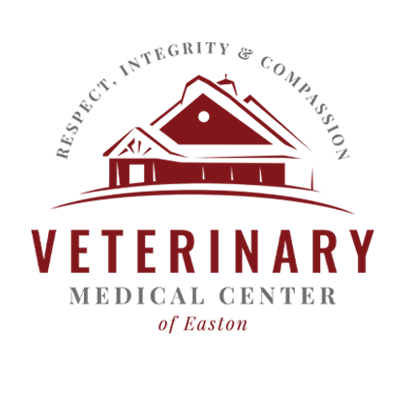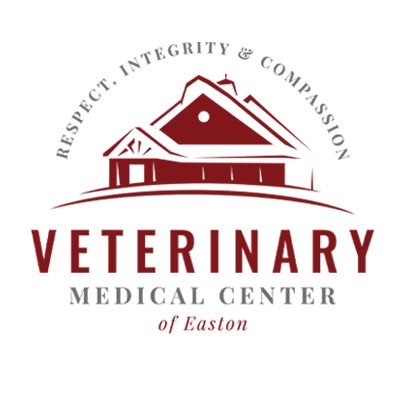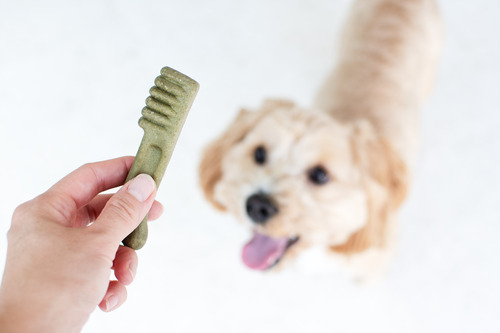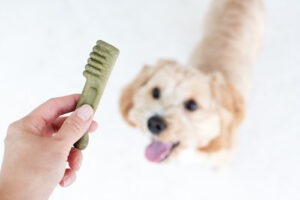Taking care of your dog’s teeth is an essential part of their overall health and happiness. Many pet owners may not realize that dogs are just as prone to dental issues as humans. By prioritizing oral hygiene, you can help your dog avoid pain, tooth loss, and other health complications. To guide you through the essentials, we’ve put together eight effective tips for dog teeth cleaning that will make a difference in your pet’s life. If you have questions about your dog’s dental health, call Veterinary Medical Center of Easton at (410) 822-8505 today!
The Importance of Regular Dog Teeth Cleaning
Just like humans, dogs need regular teeth cleaning to avoid the buildup of plaque and tartar, which can lead to dental disease. Studies show that up to 80% of dogs develop some form of dental disease by the age of three, often leading to painful conditions that may affect their eating, mood, and overall well-being. Regular dog teeth cleaning isn’t just about fresh breath—it contributes to a healthier, happier pet.
How Dental Health Impacts Overall Wellness
Poor oral health in dogs can lead to serious issues, including infections that may spread to the heart, liver, and kidneys. A simple dog teeth cleaning routine can help prevent these complications, enhancing your pet’s quality of life. For this reason, veterinarians encourage pet owners to adopt a regular dental care routine and schedule professional cleanings as recommended by their vet.
Start Dog Teeth Cleaning Early
The best way to make dog teeth cleaning part of your pet’s routine is to start as early as possible. Introducing oral hygiene practices when your dog is still a puppy will help them adapt to brushing and other cleaning methods without resistance. Training a young dog to accept teeth cleaning is easier than training an adult, especially if you use positive reinforcement, such as treats and praise.
Tips for Introducing Teeth Cleaning to Puppies
When beginning with puppies, start by letting them smell and lick dog-safe toothpaste to get used to the taste. Then, gradually introduce a toothbrush or finger brush in a non-invasive, gentle manner. By creating a calm environment, you’re more likely to succeed in establishing a routine they’ll follow throughout their life.
Select the Right Tools for Dog Teeth Cleaning
Dogs have unique dental structures, and using human toothpaste or brushes can be harmful or uncomfortable for them. Instead, opt for dog-specific toothbrushes, finger brushes, and enzymatic toothpastes that are specially formulated for pets.
Choosing Toothpaste and Brushes
Dog-specific toothpastes come in flavors like chicken or peanut butter, making the cleaning process more enjoyable for your pet. Likewise, pet toothbrushes have softer bristles designed for sensitive gums. Using these products makes the process not only safer but also more appealing to your dog, increasing the chances that they’ll accept regular cleaning sessions.
Establish a Routine for Consistent Dog Teeth Cleaning
Aim to brush your dog’s teeth at least two to three times a week, as frequent brushing helps prevent plaque buildup. Establishing a regular schedule can make the experience feel more routine for your dog, reducing stress and helping you to maintain a pattern.
Making Teeth Cleaning Part of Your Dog’s Daily Routine
Try adding teeth cleaning to an already established routine, like after a daily walk or feeding. Over time, your dog may come to expect this as a normal part of their day. This approach helps create a positive association with the activity, making your dog more willing to participate.
Use Dental Chews to Supplement Dog Teeth Cleaning
In addition to brushing, using dental chews can be an effective way to supplement your dog’s teeth cleaning routine. Dental chews are designed to help reduce plaque and tartar buildup, giving your dog a fun and tasty way to support their oral health. However, these chews should not replace brushing but rather serve as an addition to a thorough dog teeth cleaning routine.
Choosing the Right Dental Chews
Look for chews approved by the Veterinary Oral Health Council (VOHC), as these products have been tested and proven to aid in dental care. Remember to monitor your dog while they’re chewing, as some chews can break into smaller pieces that may pose a choking hazard.
Consider Dental Toys for Extra Support
Dental toys are another great way to promote oral health between cleanings. These toys are designed with textures that help scrub away plaque while your dog chews, providing a passive cleaning method that also entertains them. Make sure the toys are durable and sized appropriately for your dog’s breed and chewing habits.
Safe Play with Dental Toys
Supervise your dog during playtime with dental toys to ensure they are using them safely. Regularly check these toys for signs of wear and replace them as needed to avoid potential choking risks. Not only do these toys aid in cleaning, but they also offer a healthy outlet for your dog’s natural chewing instinct.
Schedule Professional Dog Teeth Cleanings
Regular at-home dog teeth cleaning is vital, but professional cleanings are equally important. Veterinary professionals have the tools and expertise to clean below the gum line, where plaque and tartar are hardest to reach. Depending on your dog’s age, breed, and oral health, your vet may recommend professional cleanings every 6-12 months.
Benefits of Professional Cleanings
Professional dog teeth cleaning involves more than just removing surface plaque. The procedure typically includes a thorough examination, allowing your vet to identify any underlying dental issues. Detecting and treating these issues early can prevent more serious complications later on, so consider scheduling regular cleanings for optimal oral health.
Avoid Human Foods Harmful to Dog Teeth
Certain human foods can damage a dog’s teeth, and avoiding them can make a big difference. Sugary foods, in particular, promote plaque buildup and increase the risk of cavities. Other foods, like bones or hard objects, can cause fractures or damage teeth. A well-balanced dog diet with minimal treats is ideal for maintaining healthy teeth.
Understanding Safe Treats and Foods
Opt for dog treats specifically designed for dental health rather than human snacks. Many commercial dog treats are not only free from harmful sugars but also formulated to help with oral hygiene. Consult your veterinarian to choose the best treats for your pet’s dental health.
Make Dog Teeth Cleaning a Positive Experience
Use plenty of encouragement and reward your dog with a favorite treat or praise after each session. Patience is key, especially if your dog is hesitant about having their teeth cleaned.
Training Tips for a Cooperative Dog
Start by introducing teeth cleaning slowly, rewarding calm behavior along the way. Positive reinforcement can turn an initially stressful experience into a bonding moment for you and your dog. Make teeth cleaning a short, gentle experience to help your dog adjust to this new routine.
Contact Veterinary Medical Center of Easton for Professional Guidance
Caring for your dog’s teeth at home is a great start, but expert advice and routine check-ups are invaluable in maintaining a pet’s long-term dental health. If you have questions about your dog’s oral care or need to schedule a professional cleaning, call the Veterinary Medical Center of Easton at (410) 822-8505 today. Regular check-ups ensure that any potential dental issues are addressed before they impact your dog’s health.







